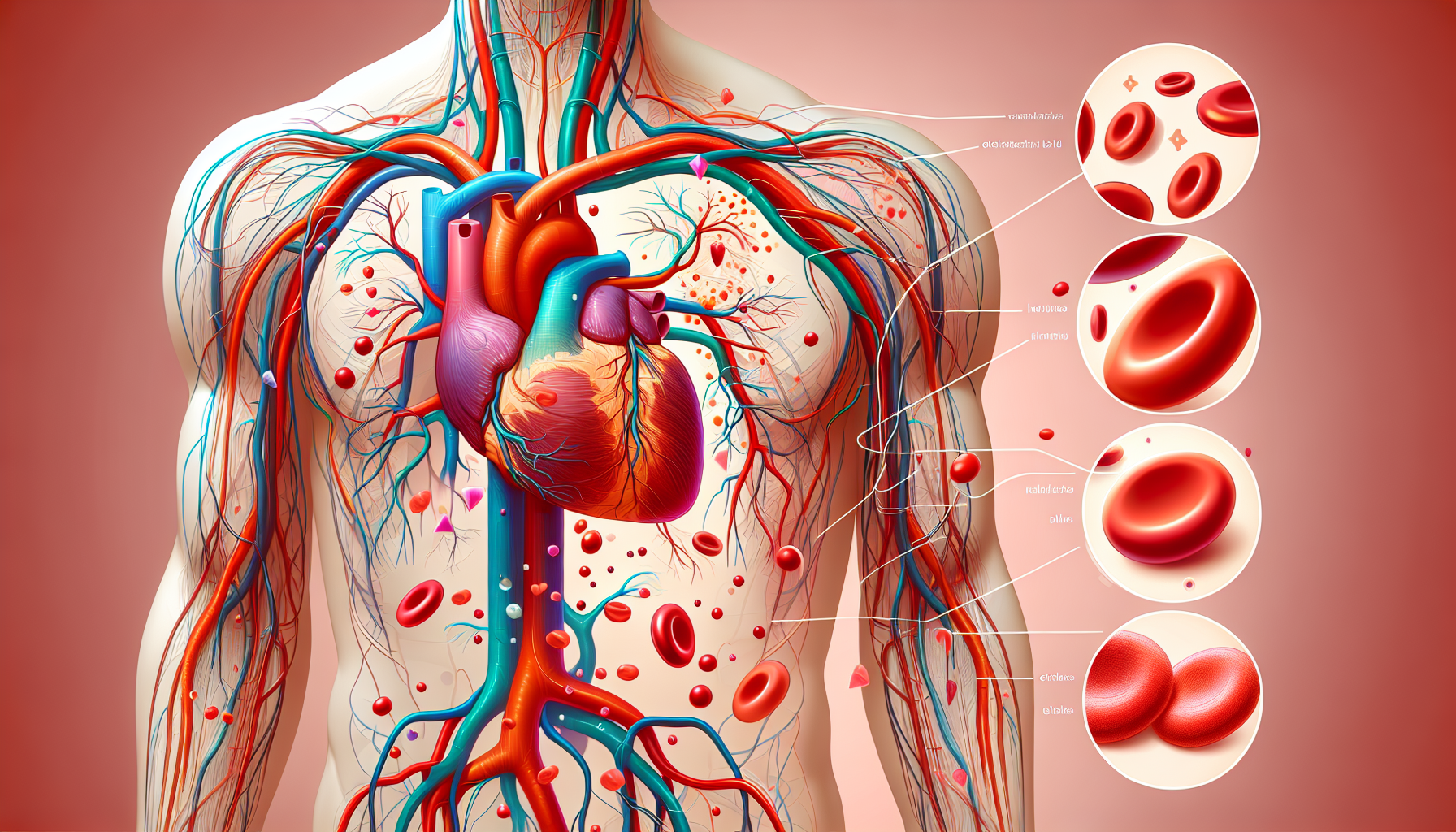The intricate relationship between blood sugar levels and cardiovascular health is a pivotal aspect of overall well-being. Elevated blood sugar levels, especially when chronic, can have a profound impact on heart health, leading to a range of complications. It is paramount to understand this interplay to foster better cardiovascular outcomes and maintain a healthy lifestyle.
Understanding Blood Sugar Dynamics
Blood sugar, or glucose, is the body’s primary source of energy, obtained from the food we consume. Insulin, a hormone produced by the pancreas, facilitates the transport of glucose into cells. However, when the body’s response to insulin is impaired, glucose levels can rise, leading to prediabetes or diabetes. These conditions are closely linked to an increased risk of cardiovascular diseases (CVDs), such as coronary heart disease, heart attack, and stroke.
The Cardiovascular Consequences of High Blood Sugar
Chronic high blood sugar can inflict damage on blood vessels and the nerves that control the heart. Over time, the excess glucose can lead to the buildup of plaque in the arteries, a condition known as atherosclerosis, which can restrict or block blood flow. This restrictive flow not only raises the risk of heart attacks and strokes but can also lead to peripheral arterial disease and chronic kidney disease, both of which are risk factors for CVD.
For a comprehensive understanding of cardiovascular health, consider reading Cardiovascular Health, which offers extensive insights into heart-related disorders and preventive strategies.
Monitoring Blood Sugar for Heart Health
Regular monitoring of blood sugar levels is critical for those at risk of or diagnosed with diabetes. Maintaining blood sugar levels within a target range can significantly reduce the risk of developing CVD. Lifestyle adjustments, including diet and exercise, combined with medication if necessary, can effectively manage blood sugar levels.
Incorporating high-intensity interval training, as outlined in Maximizing Cardiac Health with High-Intensity Interval Training, is an excellent strategy to improve heart health and regulate blood sugar levels.
Dietary Considerations for Blood Sugar and Heart Health
A balanced diet rich in fiber, lean proteins, and healthy fats can help manage blood sugar levels and support heart health. Limiting the intake of processed foods, refined sugars, and saturated fats is essential. Foods with a low glycemic index, such as whole grains, legumes, and most fruits and vegetables, are preferable as they cause a slower, more stable rise in blood sugar levels.
The critical role of antioxidants in cardiovascular disease prevention is highlighted in The Importance of Antioxidants in Cardiovascular Disease Prevention, which discusses how these compounds can protect against oxidative stress and inflammation, key contributors to heart disease and diabetes.
The Role of Medication and Supplements
For some individuals, dietary and lifestyle changes may not be sufficient to control blood sugar levels. In such cases, medication, including insulin or insulin sensitizers, may be necessary. Additionally, supplements such as Coenzyme Q10 have been linked to improved heart health and may support blood sugar control. Detailed information on the interplay between supplements and heart health can be found in The Relationship Between Coenzyme Q10 and Heart Health Maintenance.
Medication and supplements should always be used under the guidance of a healthcare professional. For further reading on the topic, you can explore Medication & Supplements.
Advanced Glycation End Products and Cardiovascular Health
Another factor linking high blood sugar with heart disease is the formation of advanced glycation end products (AGEs). AGEs are harmful compounds formed when protein or fat combine with sugar in the bloodstream. They can cause inflammation and damage within the body, including the cardiovascular system. It’s crucial to manage blood sugar levels to minimize AGE formation.
For in-depth resources on AGEs and their impact on health, you can refer to niche research such as the Journal of the American College of Cardiology and Diabetes, which provide scientific insights into the mechanisms by which AGEs influence cardiovascular health.
Psychological Stress, Blood Sugar, and Heart Health
Stress can elevate blood sugar levels due to the release of hormones such as adrenaline and cortisol. Chronic stress, therefore, can be a contributing factor to both poor blood sugar control and heart health. Managing stress through mindfulness, exercise, and therapy can help mitigate its adverse effects.
In the realm of mental health and its connection to heart health, Linking Mental Health and Heart Health for a Holistic Approach offers valuable perspectives on addressing psychological factors to improve cardiovascular outcomes.
Conclusion
The interplay between blood sugar levels and cardiovascular health is complex but crucial for maintaining overall well-being. By understanding the connection and implementing strategies to manage blood sugar, individuals can significantly reduce their risk of heart disease. Regular monitoring, a balanced diet, physical activity, medication when necessary, stress management, and staying informed through reliable resources are all part of a holistic approach to heart health.
For further exploration into this topic, niche resources such as the American Heart Association and Diabetes Care provide invaluable information that supports the points made within this article.
In conclusion, taking proactive steps in controlling blood sugar levels is not just about diabetes management—it’s also about protecting the heart. With the right knowledge and actions, it’s possible to live a healthier life with a stronger, more resilient cardiovascular system.



